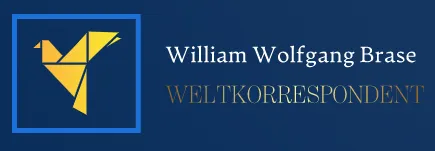In this article, we unlock some of the top secrets in government tendering to bring you closer and increase your chances of creating an effective bid. The article tries to break down the myths in government tendering and simplifying the tendering process.
Understanding a Tender
A tender in its simplest form is an advertisement for a requirement posted by the authorities. It is a document that specifies the complete technical specifications of the requirements for which an invitation is usually floated to all potential suppliers. The buyer chooses the supplier based on the criterion specified including cost, delivery time and other technical specifications. The most suitable bidder is awarded the contract after which they are required to supply the product/services to the buyers. In simple terms, it is a business contract between two entities which is done in a transparent manner. See Tender Contract.
Tendering Process Explained
Although different authorities set out different approaches to a tender, the process comprises of some common steps as described below
- Issuing a Prior Information/ Pre-qualification - Authorities set out a budget or a procurement plan which is also known as a prior information or a pre-qualification for a tender. This is just an intimation sent out to inform potential bidders that the authority is planning to procure a certain item. In this phase, the authority usually sets out a simple document asking for interest to participate in the tender. For small quantity procurement or for general category items, this step is also omitted.
- Invitation to Tender/RFP/RFQ: - This is the most important stage where the tender is actually floated with a set deadline for participation. An invitation to tender or a Request for Proposal is a document that informs the potential bidders that the authority is now ready to procure the items and needs a quotation for the product/service to be procured. At this stage, the technical and legal specifications are mentioned explicitly in a detailed manner. The document set also known as the bidding documents are usually free or cost but some authorities may levy a charge to limit participation or keep the information confidential.
- Document Submission - This phase is when the bidders are expected to send their completed bids/quotations. In this step, all necessary documents including legal, technical and financial must be submitted to the authorities to present a strong case. This is usually done via e-procurement portals in most cases. However, some cases also accept offline bid submissions by physically presenting the paper bids in offices. Irrespective of the method of submission, this is the single most important phase in the tendering process.
- Contract Award - Based on the technical and financial criterion, the awarding authority releases the results of the bid and announces the winner. The signing and initiation of the contract happens at this time and it is the stage when payment terms and delivery details are discussed and agreed.
Now that the process of tendering is known to the readers, it is worthwhile to put some light on the 10 success strategies for success in tenders.
1. Selecting the Right bid - One of the most important factors in the success of bids comes from the selection of the right bid. Companies need to narrow down to a bid that exactly matches their product offering. To do this, companies must select the most appropriate bid that reflects their product offering.
2. Choosing the right buyer - Government bids come to those who wait! Therefore, selecting the right buyer and creating a rapport with the authorities is the way to go while hunting for success in securing bids. Companies must spend time and effort in creating solutions together with authorities through discussion. The tender activity then becomes a byproduct of the discussion and a mere formality.
3. Quality Products/Services - When competing in public bids, quality matters a lot since the product/services are for general public consumption directly or indirectly.
4. Planning: Public tenders are a long term game and proper planning and strategic outlook is required to acquire public business. Companies must plan bids in advance to ensure they stand the best chance to become successful at the bid.
5. Presenting the bid - After selecting the right bid for the business, companies must present the bid in the most profitable manner for the authorities. Presentation may involve granting of discounts and giving a perceived value proposition as compared to the competitors. The bid presented must be professional and have a clear layout and visuals if required.
6. SME Advantage - It is a myth that government bids are only for large corporations. In fact, SME’s can present a significant advantage if they can showcase the right value proposition for the bid. Companies must not shy away from participation in bids due to their SME tag and must embrace it to their benefit.
7. Use Jargons - Showcasing technical capabilities using industry jargons is a good way to impress the customers. Companies must use jargons wherever required but must also explain in detail about their intention in the bid. Jargons must not replace common explanation and merely be used to highlight and not to replace the value proposition.
8. Communication - Using astute communication skills is pivotal in securing a public bid. Companies must work in tandem with the authorities and consider the stakeholders point of view as the most important one while presenting the bid. Queries if any must be resolved before bid submission by crisp and clear communication that is professional and assures the authority of the company’s commitment to the procurement process.
9. Pricing - Companies must present a strategic price tag to their offering keeping in mind the industry standards, the competition and their own capacities to provide the assumed products at the said price. Pricing is a key component in many bids and must be kept at optimum to give high chances of securing the bid.
10. Assess & Re-assess - Finally, before presenting the bid response, it is always a good idea to assess and re-assess the bid to be presented. Time and effort must be spent in dissecting the minute details of the tender and the offering so that the final offer presented is too good to resist for the authorities.
Overall, the above tips are a great way to successful tendering but in no ways guarantee success. These are only stepping stones to achieving the best possible bid and increase the chances of success in public tenders. Companies must resort to all possible avenues in finding a headway leading to the eventual success landing of a government contract. For more Tender Opportunities, visit Tender Impulse.

